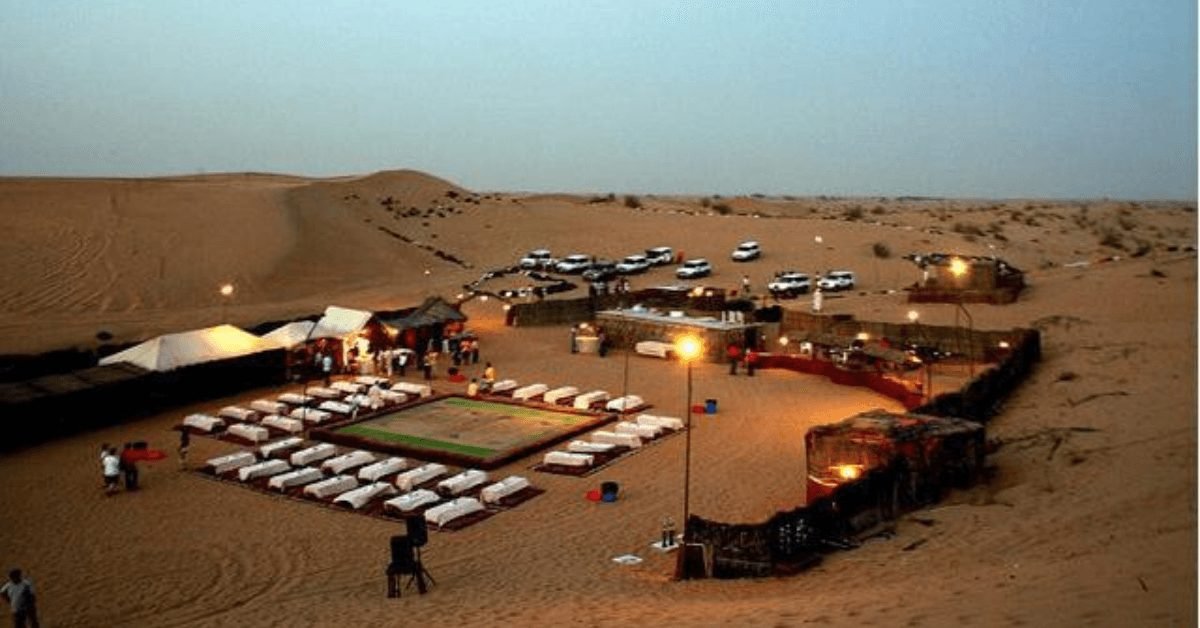A desert safari in Dubai offers an exhilarating and adventurous experience like no other. However, it’s essential to be aware of potential risks and take necessary precautions to ensure a safe and enjoyable trip. In this comprehensive guide, we will explore how to deal with any potential risks during a desert safari in Dubai.
Understanding the Environment
Before embarking on a desert safari, it’s crucial to familiarize yourself with the unique characteristics of the desert in Dubai. The desert landscape poses various challenges, such as extreme temperatures, shifting sand dunes, and potential hazards like thorny bushes and uneven terrain. By understanding the environment, you can better prepare for the risks it presents.
Planning and Preparation
A key aspect of dealing with potential risks is thorough planning and preparation. Research reputable tour operators who prioritize safety and have a solid track record. Choose the right time of year for the safari, considering weather conditions and temperature variations. Understand the itinerary and activities involved, ensuring they align with your comfort level. It’s also important to check the safety certifications and equipment standards of the tour operator.
Booking and Communication
When booking your desert safari, communicate with the tour operator regarding safety measures and protocols in place. Ask questions and express any concerns you may have. Provide accurate medical information, especially if you have any pre-existing conditions that may require special attention during the safari. Clear communication ensures that the tour operator is aware of your needs and can make appropriate arrangements.
Safety Guidelines and Instructions
During the desert safari, your safety relies on adhering to safety guidelines and instructions provided by the safari guide. Listen attentively to the briefing before the safari begins, as the guide will highlight important safety information. Follow instructions regarding seating and seatbelts in vehicles to minimize the risk of injuries. Understand the rules for off-road driving and speed limits to ensure a safe and controlled experience. Additionally, make sure to use safety equipment like helmets and goggles correctly.
Vehicle Maintenance and Inspection
To mitigate risks during a desert safari, it’s essential to ensure that the tour operator maintains their vehicles regularly. Before departure, check the condition of the safari vehicles yourself. Confirm the presence of essential safety features such as roll cages and fire extinguishers. Proper vehicle maintenance and inspection contribute significantly to the overall safety of the safari.
Health and Hygiene Considerations
The desert climate in Dubai can be harsh, and it’s crucial to prioritize your health and hygiene during the safari. Stay hydrated by drinking plenty of water and protect yourself against heat exhaustion by wearing appropriate clothing and applying sunscreen. If you have any specific medical conditions, bring the necessary medications and inform the guide about them. Maintaining cleanliness and hygiene in the desert environment helps prevent potential health issues.
Wildlife and Nature Awareness
The desert is home to a variety of wildlife, and it’s important to be respectful and aware of their presence. Understand the local wildlife and their behavior to avoid any unnecessary encounters or disturbances. Respecting natural habitats and ecosystems is crucial for preserving the delicate balance of the desert environment.
Emergency Procedures
While no one wants to encounter an emergency during a desert safari, it’s essential to be prepared. Familiarize yourself with the emergency contact information provided by the tour operator. Understand evacuation protocols in case of an emergency and know basic first aid techniques for common injuries. Carrying a fully charged mobile phone and emergency supplies ensures that you can respond effectively in case of any unforeseen situations.
Fire Safety and Campsite Guidelines

When camping in the desert, fire safety should be a top priority. Adhere to fire safety regulations and guidelines set by the tour operator. Understand the campsite layout and the location of emergency exits. If you notice any potential fire hazards or unsafe conditions, report them immediately. It’s important to respect designated smoking areas, if applicable, to prevent any accidental fires.
Dune Bashing Safety

Dune bashing is a thrilling activity enjoyed by many during a desert safari. However, it comes with its risks. Understanding the risks and potential hazards of dune bashing is essential. Ensure that the vehicle used for dune bashing has proper safety equipment. Follow the instructions of the experienced dune-bashing driver to maintain a safe and controlled experience. Most importantly, communicate your personal limits to the driver to ensure your comfort and safety.
Camel Riding Precautions

Camel riding is a popular activity during a desert safari, but it’s important to approach it responsibly. Choose reputable operators that prioritize the welfare and treatment of their camels. Before riding, check the condition of the camels and ensure that they are well cared for. Follow instructions from the camel guide or handler to ensure a safe and enjoyable experience. It’s crucial to maintain balance and hold on securely during the ride to minimize any potential risks.
Quad Biking and Sandboarding Safety

Quad biking and sandboarding are thrilling activities that add an extra element of excitement to a desert safari. However, it’s important to approach these activities with caution and prioritize safety. Select reliable rental providers that maintain their equipment properly. Understand the safety guidelines and restrictions for these activities. Always wear appropriate safety gear, including helmets and protective clothing. If you are new to quad biking or sandboarding, consider taking lessons or seeking guidance before attempting these activities.
Avoiding Dehydration and Heat Stroke
Dehydration and heat stroke are significant risks when exposed to the desert’s extreme temperatures. Recognize the signs of dehydration, such as excessive thirst, dizziness, and fatigue. Drink sufficient amounts of water throughout the safari and take regular breaks to seek shade and cool down during hot weather. Understanding your personal hydration needs based on activity levels can help prevent dehydration and heat-related illnesses.
Navigating Sandstorms and Extreme Weather
Sandstorms and extreme weather conditions can occur in the desert, posing potential risks. Recognize the signs of an approaching sandstorm, such as strong winds and reduced visibility. In the event of a sandstorm, take shelter immediately and protect yourself from flying debris. Follow the guidance of the safari guide in extreme weather situations. If you get separated from the group, it’s crucial to know the procedure for rejoining them to ensure your safety.
Cultural Sensitivity and Etiquette
When participating in a desert safari in Dubai, it’s important to respect the local culture and traditions. Dress modestly and appropriately, considering the conservative nature of the region. Seek permission before taking photographs of people or private property to respect privacy. Avoid any offensive behavior or language that may be considered disrespectful. By being culturally sensitive, you contribute to a positive and harmonious experience for everyone involved.
Children and Elderly Participants
When planning a desert safari, consider the suitability of the experience for children and elderly participants. Assess the level of physical activity and potential risks involved in the activities. Ensure that appropriate safety measures are in place for vulnerable participants. If you are traveling with children, supervise them at all times and keep them engaged and safe. Communicate any special requirements or concerns to the tour operator to ensure the comfort and well-being of everyone involved.
Post-Safari Check-Up
After the desert safari, it’s essential to monitor your physical well-being. Pay attention to any symptoms or discomfort that may have arisen during the safari. If you experience any issues, seek medical attention promptly. Report any incidents or injuries to the tour operator to ensure appropriate follow-up and documentation. Providing feedback on safety measures and your overall experience helps improve the quality and safety of future desert safaris.
Conclusion
In conclusion, a desert safari in Dubai offers a unique and thrilling experience. By being aware of potential risks and taking necessary precautions, you can ensure a safe and enjoyable adventure. Thorough planning, understanding the environment, following safety guidelines, and being culturally sensitive contribute to a memorable and risk-free desert safari experience.

